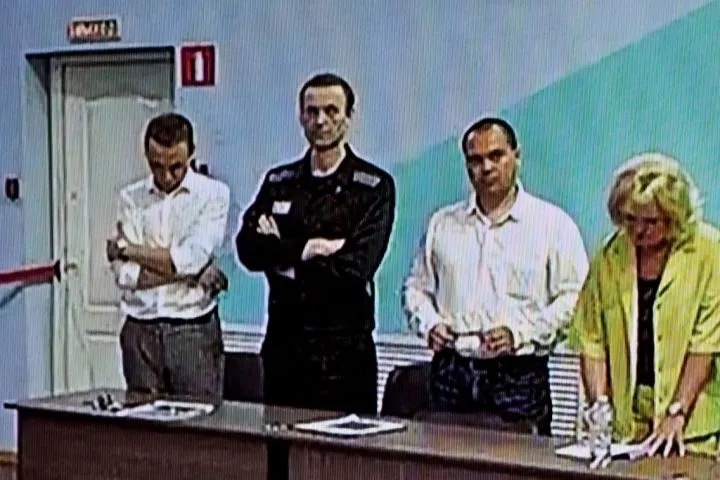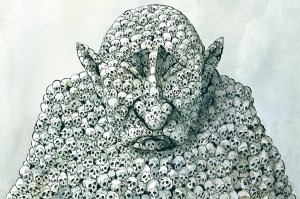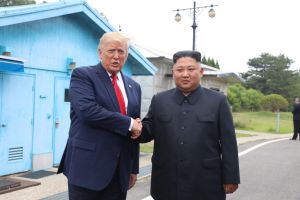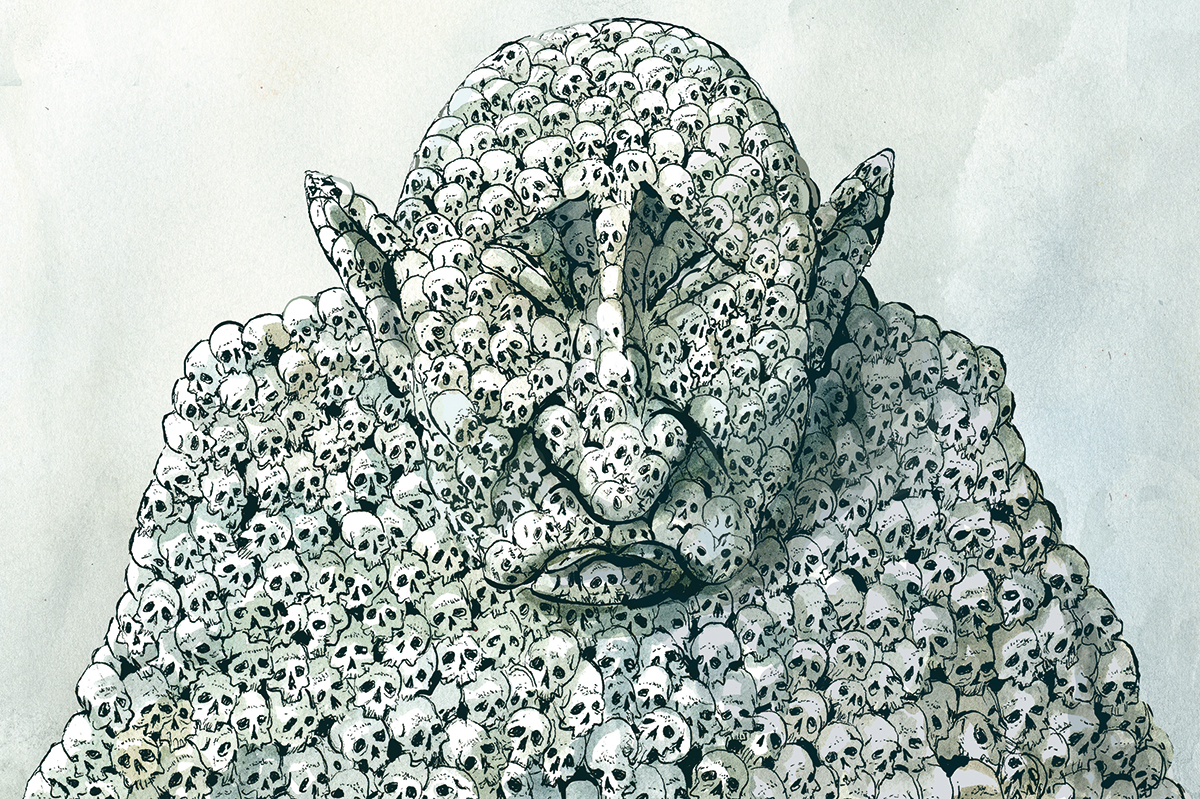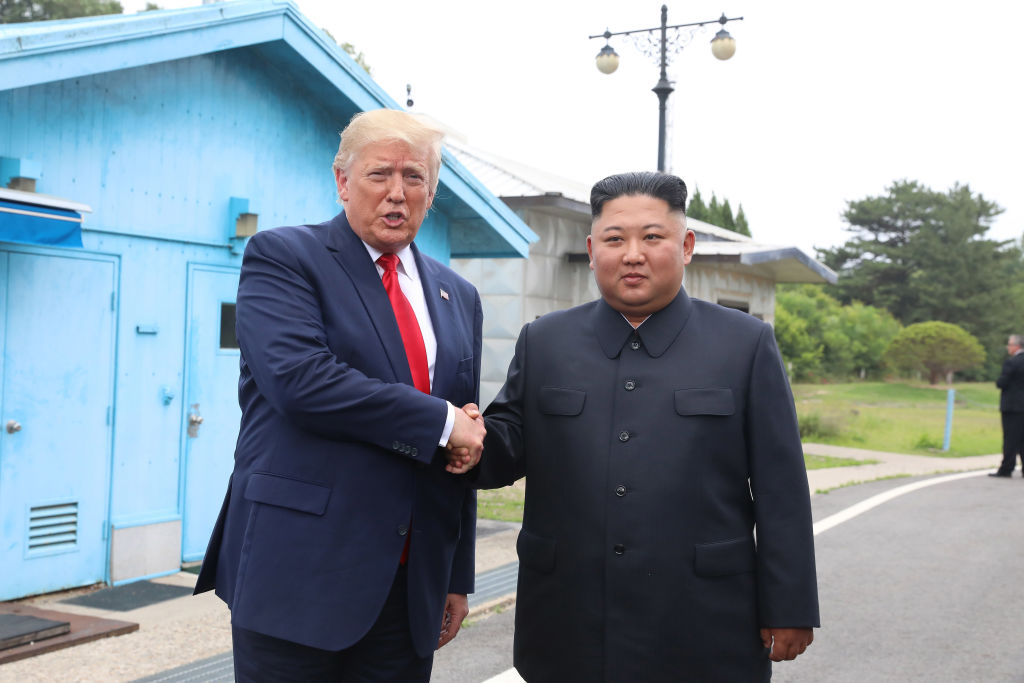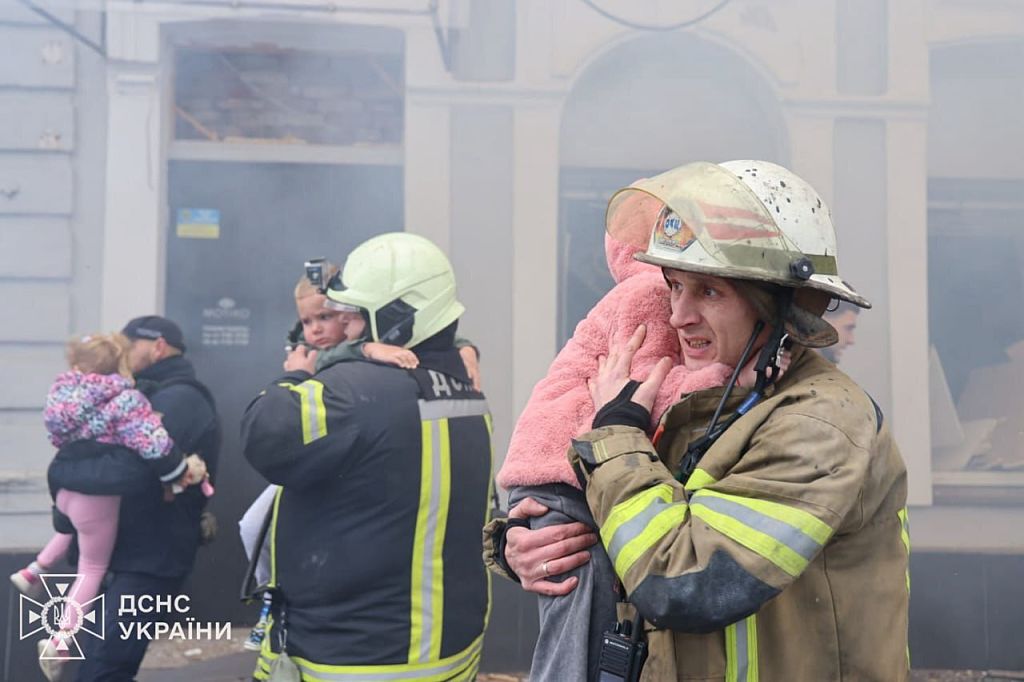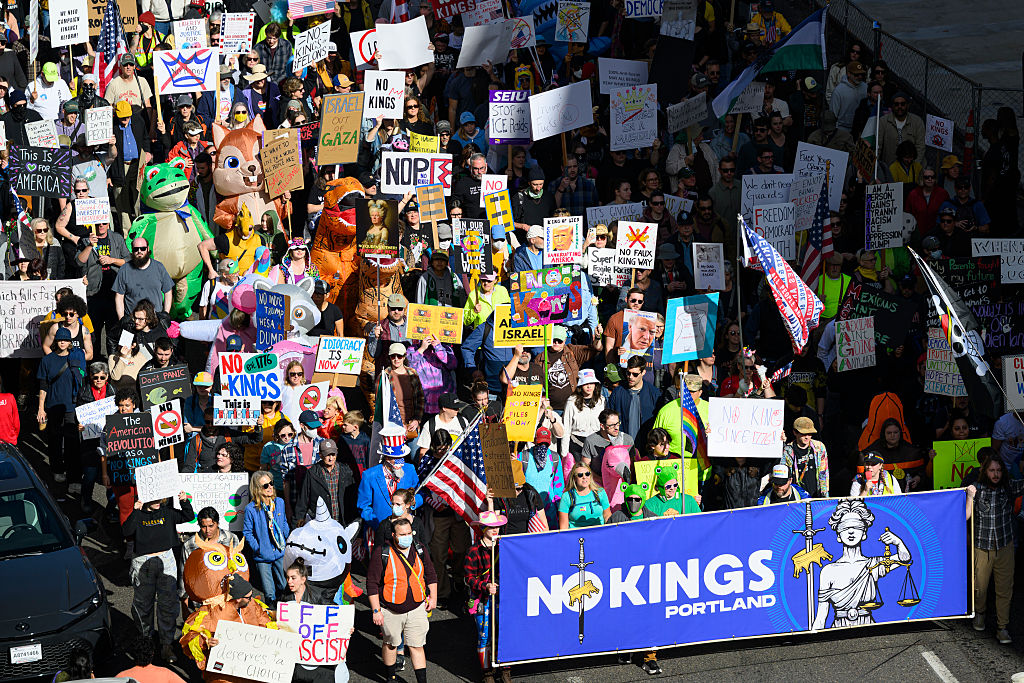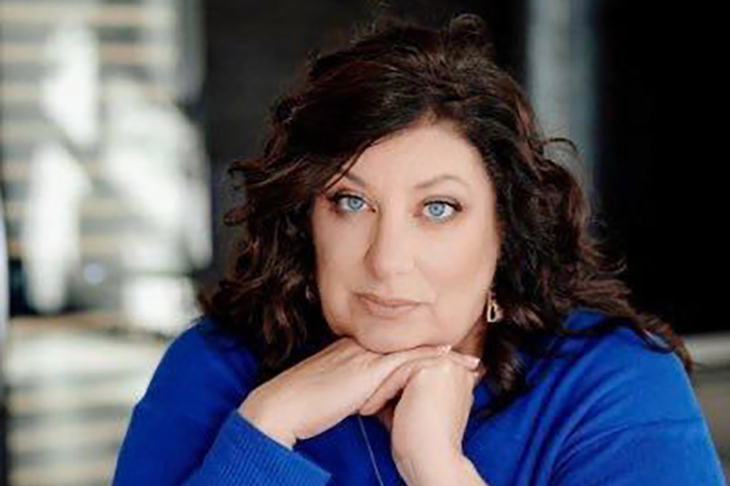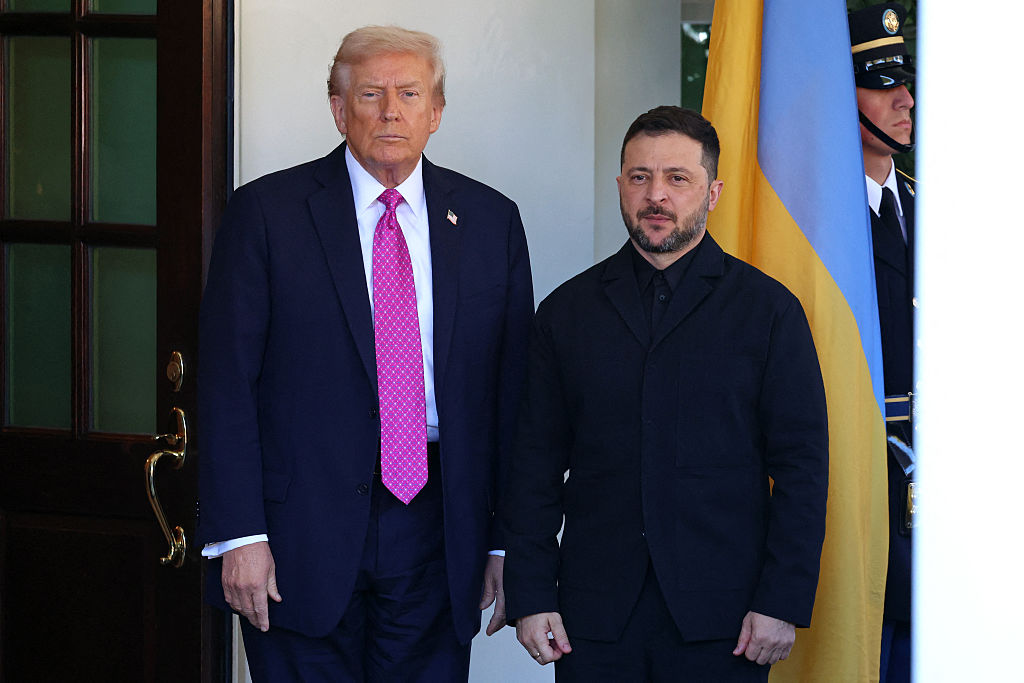The nineteen-year extended prison sentence handed out to Putin opponent Alexei Navalny on Friday may seem, to many, meaningless and the stuff of Kremlin fantasy. Putin himself is unlikely to be with us in 2042, and his regime will be history long before that.
Nor do we know whether his successor will issue an amnesty to those Putin has singled out for persecution or take an even harder line with them. Rarely has the Russian future seemed so elastic — yet the conditions under which Navalny will be incarcerated now are anything but.
Sentenced to a “special regime” prison colony, he is reportedly to be kept under constant bright light, banned from conversation with his cellmates and denied letters or more than one visit per year — at the discretion of the authorities. This follows years of mistreatment in two previous prisons, where he claims to have been tortured with sleep deprivation, kept in solitary confinement on the flimsiest of pretexts and, suffering stomach pains and loss of feeling in his legs, very possibly poisoned.
After Friday’s sentence, his press secretary Kira Yarmysh said: “They will probably come up with something special for him because neither laws nor rules work in relation to Alexei: Putin keeps coming up with new ways to turn his life into hell.”
It wasn’t necessary, one must recall, for Navalny to go through even a single a day of this ordeal. Following his near-fatal Novichok poisoning by the FSB in August 2020, he was recovering in Germany, and could have doubtless stayed there in some comfort as Russia’s star opposition-spokesman abroad. Yet even after it was clear he faced near-certain arrest in his homeland, Navalny flew back to Moscow in January 2021. “Everyone’s asking me if I’m afraid…” he told the press. “I’m not afraid of anything and I ask you not to be afraid either.”
He was seized at Sheremetevo airport as soon as he landed and has been in jail ever since. This, needless to say, was no act of naiveté on his part. If there is anyone who knows exactly how far the Russian state will go to crush its opponents, it is Alexei Navalny. Instead, to quote journalist Masha Gessen, this was Navalny’s latest example of living “as if” — as if Russia were a normal country with the rule of law and some vague interface between the written constitution and daily reality: simply to highlight the abyss between the two.
Navalny may be a hero to many. But a full-blown saint he is not, nor quite the opposition leader the West might have chosen. At the outset of his political career, he appeared alongside far-right nationalists in the annual Russian March and at times spoke virulently against immigration. He supported the 2008 invasion of Georgia and in 2007 posted a video on YouTube comparing Muslim immigrants to cockroaches (words he has since dismissed as “artistic license”).
But regarding his extraordinary courage and steadfastness against Putin and his cronies, there can be little doubt. Nor has he often, in the last dozen years or so, put a foot wrong in the fight to subvert them.
Publicly labeling Putin’s United Russia a “party of crooks and thieves,” he has tirelessly exposed the corruption of the regime on his YouTube channel. As de facto opposition leader, he has called for mass protest against it. Even after a trumped-up suspended sentence for embezzlement prevented him launching a presidential bid in 2018, he continued to encourage “smart voting” among his followers to keep United Russia candidates out.
All this has been done in the face of more or less constant state persecution, numerous spells in prison, and a long period of house arrest. When the authorities effectively took Navalny’s younger brother hostage, hurling him into prison for three and a half years, Navalny came back fighting. He has continued to do so every time.
Just two days after the arrest which followed his 2021 return to Russia, he released his video “Putin’s Palace” on YouTube. It detailed a secret $1.35 billion luxury mansion built on the Black Sea coast and funded by illicit kickbacks from the president’s inner circle.
All of this is dementing for Putin. He cannot even bring himself to call Navalny by name, always referring to him as “the person,” “the citizen,” “this gentleman” or, since his 2020 poisoning, “the patient.”
While in jail, Navalny has continued to denounce the government. At his trial in April 2022, with his two and a half year sentence extended to nine, he declared himself “ready to stay here in prison to prove to the whole world — and to myself, most importantly — that not all people in Russia are such crazy, insane perverts and bloodsuckers…”
Even his possible death at the hands of the state — now, if only by a process of attrition, far more likely — is something he refuses to see as a killer blow to his life project. “You’re not allowed to give up,” he has said to his followers on camera. “If they decide to kill me it means we are incredibly strong… So don’t be inactive.”
All this may be proof of an exceptional human being, though not necessarily, it must be said, a potentially great Russian leader. Policy details have been thin on the ground, with Navalny’s critics pointing out that Boris Yeltsin too emerged initially as an anti-corruption candidate and great liberalizing hope for the country, only to preside over near-unprecedented levels of corruption and chaos in the Nineties. That said, one wonders how Yeltsin would have coped with Navalny’s prison sentence, and its apparently Kremlin-tailored special torments. There the parallels cease.
In any case, comparisons — crueler ones — are easier to make with Russia’s current premier. You can’t help but set Navalny’s fearless return to Russia, his 2021 prison hunger strike, the refusal to submit and keep quiet, beside Putin’s self-isolating desert of a conference table, his reported body-doubles or Covid terrors. While Navalny stands for an almost freakish recklessness, his long-term foe seems to shift and cower behind little man complexes and a host of veiled timidities.
In twenty-four years of power Putin has had neither the guts nor self-confidence to debate a single opponent. Indeed, the only time he met a hostile public — the angry relatives of those who had died in the Kursk submarine disaster in 2000 — the president was reduced to screaming rage at the event’s organizers and a vow never to be so vulnerable again.
His enemies — the journalist Anna Politkovskaya, ex-FSB whistleblower Alexander Litvinenko, political opponent Boris Nemtsov — have all met murky and tragic ends. Navalny’s massively increased sentence and the dreadful conditions surrounding it are simply the latest in a litany of vindictive, cowardly acts from the supposed “strong man” of Russian politics.
Yet they can also be seen as a perverse kind of tribute, a badge of merit which may yet prove another of the Russian leader’s chronic errors of judgment. Navalny’s ongoing, astonishing self-sacrifice is once again front page news and will continue to be so.
“Who is Mr. Putin?” American journalist Trudy Rubin famously asked at Davos in 2000, when the ex-KGB operative had just stepped out of the shadows and into office. Should miracles happen and Alexei Navalny one day get his own shot at power, few among us will be asking the same question.
This article was originally published on The Spectator’s UK website.



